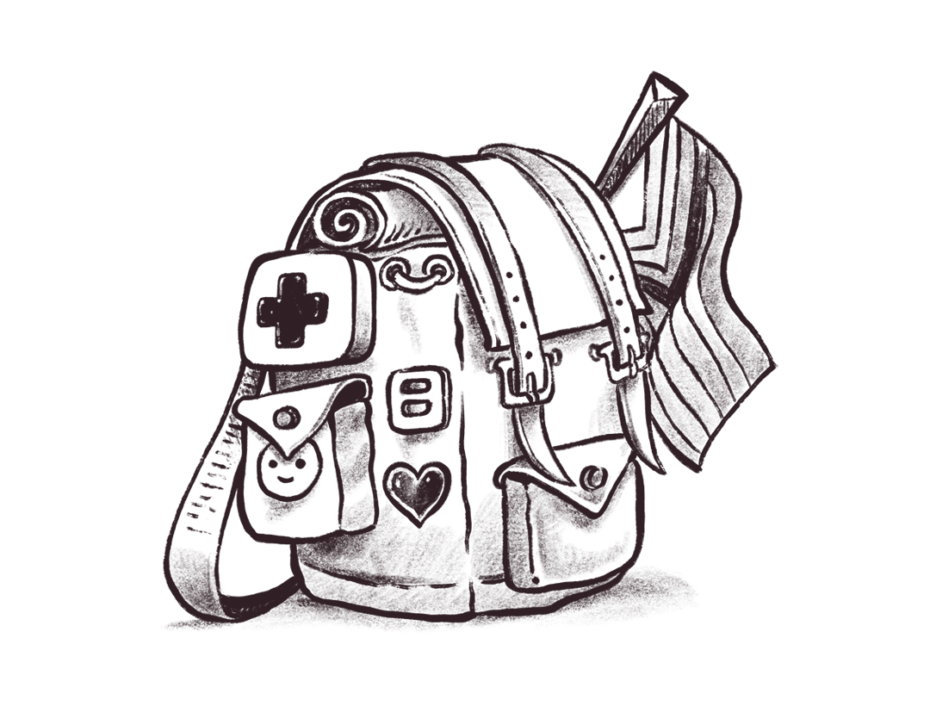Why we don’t get the help we need — Barriers to suicide support

Lots of people in our communities live full and joyful lives, and the statistics around suicide and thoughts of suicide are not synonymous with our identities. We show resilience and resistance every day that we exist.
However, we know that LGBTQ+ people experience suicidality at much higher rates than the general population.
Unfortunately, we don’t always get the help we need. Understanding what prevents LGBTQ+ people reaching out for support in times of crisis or distress can improve how we advocate for changes to systems and health services and improve inclusion and affirming care within community spaces.
Often, support can be found outside of mental health crisis services. Thoughts and feelings of suicide are impacted by our living situations, which can be improved with practical support services, like help with debt, housing or social connection. We highlight situational distress factors here.
Previous Negative Experiences
Members of our communities often report that health services are not asking questions on sexuality and gender indicators, including pronouns. Often assumptions are made from intake and assessment forms that are not inclusive of our experiences or identities. This leads to harmful and painful experiences talking about our identities to health and clinical professionals, which can prevent reaching out for future support needs.
We may also be concerned that gender and/or sexuality experiences and identities could be used against us in medical and/or mental health assessments or treatments. We may not want to disclose our identities because it may pose a risk to personal safety, cultural safety, our professional lives, and our needs to belong to our own ethnic or cultural backgrounds, kinship/s, and family (chosen or relatives).
Some may feel that their experiences or cultural needs might not be fully accepted or understood by other LGBTQ+ communities and services, let alone mainstream ones.
We may have had bad experiences with and/or don’t trust police and the medical system due to current and historical violence or discrimination. We may therefore avoid using crisis services that call 000 when we express our distress. We may also have concerns around confidentiality while using LGBTQ+ services staffed by local LGBTQ+ community members. Peer networks can have the same issues with confidentiality.
Anticipating discrimination or lack of understanding
LGBTQ+ people may assume that crisis support workers won’t understand our diverse lived experiences, cultural nuances, and needs. We may fear hearing language that invalidates identities and experiences, or that the support worker won’t understand or show empathy towards our situational distress.
Accessibility and Safety
Physical access – Some people may not be able to speak to crisis support services over the phone in front of family, peers, or work colleagues, and may find it difficult to find a private space to call.
Technical and digital barriers – To call or text crisis support services, you need a phone or mobile or be connected to the internet. This can be a challenge for people living in rural or remote areas. Digital literacy can also be an obstacle.
Language barriers – Some people might not have enough English language skills to engage with a crisis line, especially during a crisis, and translation services are not always culturally sensitive to LGBTQ+ people and their experiences.
Cultural barriers – Crisis line workers are not always trained to understand the cultural sensitivities and nuances around suicide of LGBTQ+ people who are culturally, ethnically, linguistically diverse, and LGBTQ+ Aboriginal and Torres Strait Islander people.
Financial barriers – Experiences of financial and employment difficulties or financial dependency on a partner or family can limit a person’s access to a mobile, internet data, travel expenses, or affording a regular affirming GP or clinician.
Not knowing what services exist
Less than 70% of LGBTQ+ people can name one or more crisis support service.
Feeling like a burden – Around 30% of LGBTQ+ people in Australia who had thoughts of suicide reported that they didn’t contact a crisis support service because they thought only immediate danger of self-harm or suicidal planning warranted it.
Crisis isn’t “serious enough” – Similarly, people don’t contact crisis support services because they feel they might be diverting attention of the service away from someone who needs it more.
Preference for own GP – Many LGBTQ+ people have a preference to reach out to a known professional first before accessing other services.
Some may feel that their experiences or cultural needs might not be fully accepted or understood by other LGBTQ+ communities and services, let alone mainstream ones.
